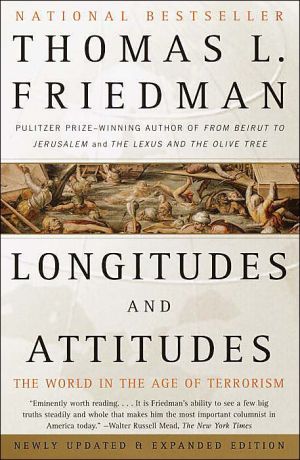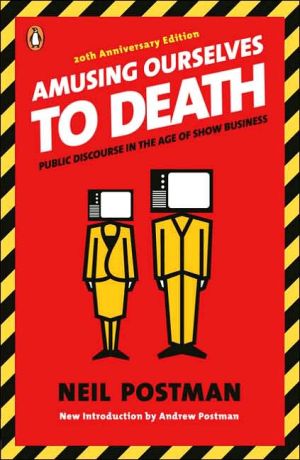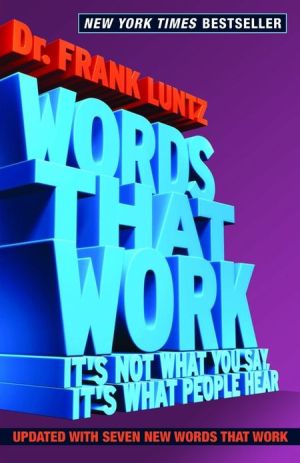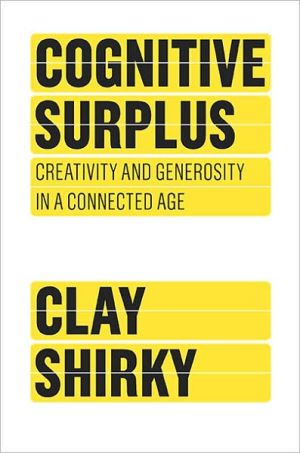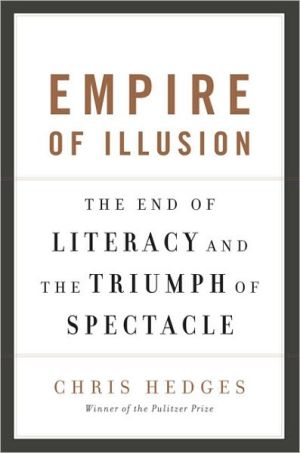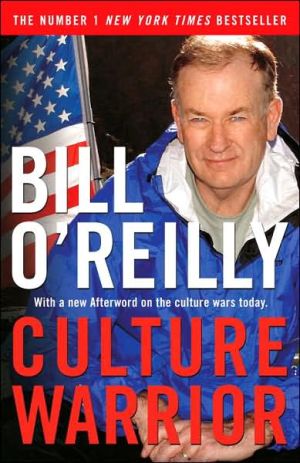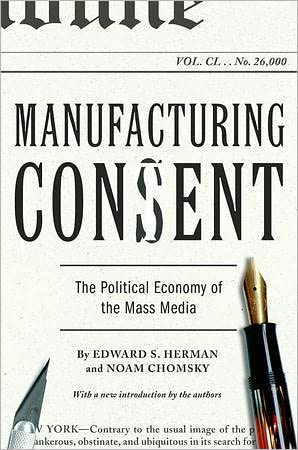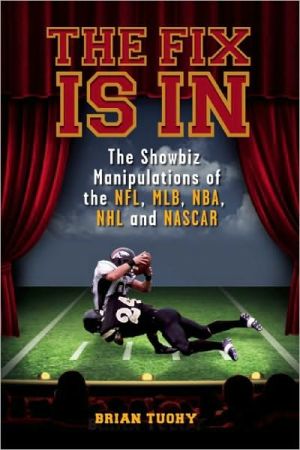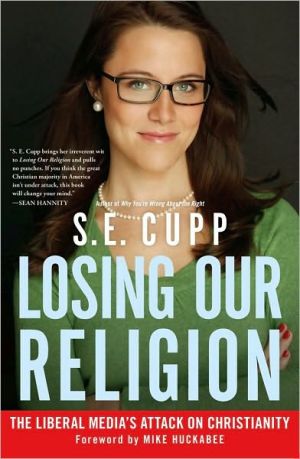Longitudes and Attitudes: The World in the Age of Terrorism
America's leading observer of the international scene on the minute-by-minute events of September 11th—before, during and after\ As the Foreign Affairs columnist for the The New York Times, Thomas L. Friedman is in a unique position to interpret the world for American readers. Twice a week, Friedman's celebrated commentary provides the most trenchant, pithy,and illuminating perspective in journalism.\ Longitudes and Attitudes contains the columns Friedman has published about the most...
Search in google:
Longitudes and Attitudes is made up of the columns Friedman has published about September 11, the most momentous news story of our time, as well as a diary of his private experiences and reflections during his reporting on the post-September 11 world, as the author travels from Afghanistan to Israel to Europe to Indonesia to Saudi Arabia. Publishers Weekly "History just took a right turn into a blind alley," comments the New York Times columnist in his latest book, "and something very dear has just been taken away from us." Tackling this observation from many different angles, this lucid book, consisting of Friedman's exceptionally frank and convincing columns and an insightful post-September 11 diary, prods at the questions surrounding that day and offers an invaluable reporter's perspective on the world from outside U.S. borders. The columns, which are the bulk of the book, represent a comprehensive album of the past two years ranging from the usefulness of building a missile shield to analyzing the structure of Arab societies yet they rarely stray from the central theme of promoting thoughtful and measured consideration of the U.S.' role in the world. However, the previously unpublished diary offers the most insight to the state of the world after September 11. Stranded in Israel during the attacks, Friedman ended up traveling throughout the Middle East, discovering how the terrorist attacks affected the region and uncovering many of the roots of anti-American sentiment, which he aptly describes alongside his reflections on watching his daughter's multicultural middle-school chorus sing "God Bless America." Unapologetically pro-American, Friedman's deliberation on what changed on September 11 outside of the U.S. ultimately centers on the strength of American society and our place in the world. (On sale Sept. 4) Forecast: Friedman has become a touchstone for readers trying to understand events of the past year. With a 12-city author tour, this will no doubt, like his previous books, appear on bestseller lists. Copyright 2002 Cahners Business Information.
LONGITUDES AND ATTITUDES\ Exploring the World After September 11\ \ By THOMAS L. FRIEDMAN\ FARRAR STRAUS GIROUX\ \ Copyright © 2002 Thomas L. Friedman.\ All rights reserved.\ ISBN: 0-374-19066-6\ \ \ COLUMNS\ Before:\ December 15, 2000-September 11, 2001\ * * *\ Medal of Honor\ * * *\ When Al Gore was in Vietnam he never saw much combat. Throughout his presidential campaign, though, he insisted he wanted to "fight" for every American. Well, Wednesday night, in his concession speech, Mr. Gore took a bullet for the country.\ The shot was fired at the heart of the nation by the five conservative justices of the U.S. Supreme Court, with their politically inspired ruling that installed George W. Bush as President. The five justices essentially said that it was more important that Florida meet its self-imposed deadline of December 12 for choosing a slate of electors than for the Florida Supreme Court to try to come up with a fair and uniform way to ensure that every possible vote in Florida was counted—and still meet the real federal deadline, for the nationwide Electoral College vote on December 18. The five conservative justices essentially ruled that the sanctity of dates, even meaningless ones, mattered more than the sanctity of votes, even meaningful ones.\ The Rehnquist Court now has its legacy: "Incalendars we trust." You don't need an inside source to realize that the five conservative justices were acting as the last in a team of Republican Party elders who helped drag Governor Bush across the finish line. You just needed to read the withering dissents of Justices Breyer, Ginsburg, Souter, and Stevens, who told the country exactly what their five colleagues were up to—acting without legal principle or logic and thereby inflicting a wound, said Justice Breyer, "that may harm not just the Court, but the nation."\ Or, as the Harvard moral philosopher Michael Sandel put it: "Not only did the Court fail to produce any compelling argument of principle to justify its ruling. But, on top of that, the conservative majority contradicted its long-held insistence on protecting states' rights against federal interference. That's why this ruling looks more like partisanship than principle. And that's why many will conclude that the five conservative justices voted twice for President—once in November and once in December."\ Which brings us back to Mr. Gore and his concession speech. It was the equivalent of taking a bullet for the country, because the rule of law is most reinforced when—even though it may have been imposed wrongly or with bias—the recipient of the judgment accepts it, and the system behind it, as final and legitimate. Only in that way—only when we reaffirm our fidelity to the legal system, even though it rules against us—can the system endure, improve, and learn from its mistakes. And that was exactly what Mr. Gore understood, bowing out with grace because, as he put it, "this is America, and we put country before party."\ If Chinese or Russian spies are looking for the most valuable secret they can steal in Washington, here's a free tip: Steal Al Gore's speech. For in a few brief pages it contains the real secret to America's sauce.\ That secret is not Wall Street, and it's not Silicon Valley, it's not the Air Force and it's not the Navy, it's not the free press and it's not the free market—it is the enduring rule of law and the institutions that underlie them all, and that allow each to flourish no matter who is in power.\ One can only hope that Mr. Bush also understands that the ultimate strength of America and the impact it has on the world does not come from all the military systems he plans to expand (though they too are important), or from Intel's latest microchip. It comes from this remarkable system of laws and institutions we have inherited—a system, they say, that was designed by geniuses so it could be run by idiots.\ Mr. Bush will soon discover that preserving this system is critical not only for America, it is critical for the world. America today is the Michael Jordan of geopolitics. Many envy the institutions and economy that ensure our dominance; others deeply resent us for the same. But all are watching our example—and all understand, at some level, that the stability of the world today rests on the ability of our system and economy to endure.\ Al Gore reinforced that system by his graceful concession; Mr. Bush will have to reinforce it by his presidency. Now that the campaign is over and the system has determined the winner, no one should root for his failure. Because, as Al Gore would say, "this is America," and it's the only one we've got.\ December 15, 2000\ My Favorite Teacher\ * * *\ Last Sunday's New York Times Magazine published its annual review of people who died last year who left a particular mark on the world. I am sure all readers have their own such list. I certainly do. Indeed, someone who made the most important difference in my life died last year—my high school journalism teacher, Hattie M. Steinberg.\ I grew up in a small suburb of Minneapolis, and Hattie was the legendary journalism teacher at St. Louis Park High School, Room 313. I took her Intro to Journalism course in tenth grade, back in 1969, and have never needed, or taken, another course in journalism since. She was that good.\ Hattie was a woman who believed that the secret for success in life was getting the fundamentals right.\ And boy, she pounded the fundamentals of journalism into her students—not simply how to write a lead or accurately transcribe a quote, but, more important, how to comport yourself in a professional way and to always do quality work. To this day, when I forget to wear a tie on assignment, I think of Hattie scolding me. I once interviewed an ad exec for our high school paper who used a four-letter word. We debated whether to run it. Hattie ruled yes. That ad man almost lost his job when it appeared. She wanted to teach us about consequences.\ Hattie was the toughest teacher I ever had. After you took her journalism course in tenth grade, you tried out for the paper, The Echo, which she supervised. Competition was fierce. In eleventh grade, I didn't quite come up to her writing standards, so she made me business manager, selling ads to the local pizza parlors.\ That year, though, she let me write one story. It was about an Israeli general who had been a hero in the Six-Day War, who was giving a lecture at the University of Minnesota. I covered his lecture and interviewed him briefly. His name was Ariel Sharon. First story I ever got published.\ Those of us on the paper, and the yearbook that she also supervised, lived in Hattie's classroom. We hung out there before and after school. Now, you have to understand, Hattie was a single woman, nearing sixty at the time, and this was the 1960s. She was the polar opposite of "cool," but we hung around her classroom like it was a malt shop and she was Wolfman Jack. None of us could have articulated it then, but it was because we enjoyed being harangued by her, disciplined by her, and taught by her. She was a woman of clarity in an age of uncertainty.\ We remained friends for thirty years, and she followed, bragged about, and critiqued every twist in my career. After she died, her friends sent me a pile of my stories that she had saved over the years. Indeed, her students were her family—only closer. Judy Harrington, one of Hattie's former students, remarked about other friends who were on Hattie's newspapers and yearbooks: "We all graduated forty-one years ago; and yet nearly each day in our lives something comes up—some mental image, some admonition, that makes us think of Hattie."\ Judy also told the story of one of Hattie's last birthday parties, when one man said he had to leave early to take his daughter somewhere. "Sit down," said Hattie. "You're not leaving yet. She can just be a little late."\ That was my teacher! I sit up straight just thinkin' about her.\ Among the fundamentals Hattie introduced me to was The New York Times. Every morning it was delivered to Room 313. I had never seen it before then. Real journalists, she taught us, start their day by reading the Times and columnists like Anthony Lewis and James Reston.\ I have been thinking about Hattie a lot this year, not just because she died on July 31, but because the lessons she imparted to us seem so relevant now. We've just gone through this huge dotcom-Internet-globalization bubble—during which a lot of smart people got carried away and forgot the fundamentals of how you build a profitable company, a lasting portfolio, a nation-state, or a thriving student. It turns out that the real secret of success in the information age is what it always was: fundamentals—reading, writing, and arithmetic; church, synagogue, and mosque; the rule of law and good governance.\ The Internet can make you smarter, but it can't make you smart. It can extend your reach, but it will never tell you what to say at a PTA meeting. These fundamentals cannot be downloaded. You can only upload them, the old-fashioned way, one by one, in places like Room 313 at St. Louis Park High. I only regret that I didn't write this column when the woman who taught me all that was still alive.\ January 9, 2001\ \ \ Excerpted from LONGITUDES AND ATTITUDES by THOMAS L. FRIEDMAN. Copyright © 2002 by Thomas L. Friedman. Excerpted by permission. All rights reserved. No part of this excerpt may be reproduced or reprinted without permission in writing from the publisher.\ \
Introduction: A Word AlbumPrologue: The Super-StoryCOLUMNS Before: December 15,2000—September 11, 2001After: September 13, 2001—July 3, 2002DIARY Travels in a World Without Walls: September 11, 2001—July 3, 2002Acknowledgements
\ From Barnes & NobleAccording to Slate, two-time Pulitzer Prize winner Thomas L. Friedman is the most important opinion journalist in America. The reason is simple: "Since September 11th, thanks to his [twice-weekly New York Times] column and his numerous TV appearances, Friedman has emerged as the best explainer of how the United States should relate to the Arab, Muslim, and Israeli world." His reputation among media insiders is so secure that Saudi Arabia's Crown Prince Abdullah used Friedman's column to reveal his Arab-Israeli peace proposal. Longitudes and Attitudes includes not only that headline-making essay but all the postSeptember 11th pieces that made the author of The Lexus and The Olive Tree so famous. A must-read.\ \ \ \ \ Publishers Weekly"History just took a right turn into a blind alley," comments the New York Times columnist in his latest book, "and something very dear has just been taken away from us." Tackling this observation from many different angles, this lucid book, consisting of Friedman's exceptionally frank and convincing columns and an insightful post-September 11 diary, prods at the questions surrounding that day and offers an invaluable reporter's perspective on the world from outside U.S. borders. The columns, which are the bulk of the book, represent a comprehensive album of the past two years ranging from the usefulness of building a missile shield to analyzing the structure of Arab societies yet they rarely stray from the central theme of promoting thoughtful and measured consideration of the U.S.' role in the world. However, the previously unpublished diary offers the most insight to the state of the world after September 11. Stranded in Israel during the attacks, Friedman ended up traveling throughout the Middle East, discovering how the terrorist attacks affected the region and uncovering many of the roots of anti-American sentiment, which he aptly describes alongside his reflections on watching his daughter's multicultural middle-school chorus sing "God Bless America." Unapologetically pro-American, Friedman's deliberation on what changed on September 11 outside of the U.S. ultimately centers on the strength of American society and our place in the world. (On sale Sept. 4) Forecast: Friedman has become a touchstone for readers trying to understand events of the past year. With a 12-city author tour, this will no doubt, like his previous books, appear on bestseller lists. Copyright 2002 Cahners Business Information.\ \ \ KLIATTThe world situation that has developed since the attack on the twin towers comes into powerful focus through this collection of columns written by Friedman, foreign affairs columnist for the New York Times. Each essay, written between January 9, 2001 and April 20, 2003, is two pages long, making Friedman's work more digestible than many political writings. At home in the Middle East, he offers insights that should not fail to engage both foreign policy makers and the informed citizens who struggle as never before to understand what is going on in that troubled area. His thinking is clear: We live in a time when the conflict is between the "World of Order" versus "a small band of super-empowered angry men from the World of Disorder." The 21 Arabic countries of the Middle East, whose gross domestic product put together is about that of Spain, need to get their focus off whom to blame for their plight; their leaders need to excite their people with a cohesive vision for their future that does not include terrorism. The media is being used by formerly powerless persons for immense ill. Leaders, secular and religious, need to see beyond blame and hatreds, secularize their educational systems (where far too many get degrees in Islamic Studies), update their economies, get rid of corruption, figure out a way to bring women into the economic life, overcome pervasive feelings of humiliation, create jobs, and scale back hate talk. Israel must quit building in areas that inflame the Palestinians. The US should have a clear plan for peace in the area. Friedman speaks directly, but he sometimes composes "letters" to persons such as Clinton, Bush, and Osama bin Laden. At the end, he includes alonger essay, "Diary: Travels in a World Without Walls," in which he reiterates his positions and observations. Friedman may not always have it right, but he has seen and spoken with the persons and observed the countries of which he writes. The reader comes away with a feeling that he is someone well worth listening to. KLIATT Codes: SA-Recommended for senior high school students, advanced students, and adults. 2002, Random House, Anchor, 399p., Ages 15 to adult. \ — Edna Boardman\ \ \ \ \ Library JournalForeign affairs columnist for the New York Times, Friedman gathers pieces for what he calls a "word album" of recent events. Copyright 2002 Cahners Business Information.\ \ \ \ \ Kirkus ReviewsSharply pointed, finely delivered observations on world politics and the ongoing war on terrorism, by New York Times columnist Friedman (The Lexus and the Olive Tree, 1999). Yes, the US has angered the Arab world by siding with Israel over the last half century. No, we didn't have it coming. Yes, globalization does entail more than hamburgers and Coca-Cola. No, we're not innocent, but Americans are essentially good and a far sight better than those disaffected Islamists recruited out of European mosques to fly airplanes into the World Trade Center, the Pentagon, and targets unknown. Expressing these points and others, albeit far more elegantly, Friedman gathers columns from the last two years that are eminently helpful in understanding the great divide yawning between the Western and Arab worlds. The author's roving beat with the New York Times permits him to travel wherever he finds a story, and in his journeys-reported in more depth in the second part of this book, which he calls an "analytical diary"-he turns up a few surprises. He notes, for instance, that in India, home to "the second-largest Muslim community in the world" (surpassed only by Indonesia), Muslims have for the most part been friendly to the US because, he explains, India is a representative democracy, not one of the barbarous, repressive states that rule most of the Islamic world. Though not shy of sword-rattling-he insists that we are now fighting WWIII, even if most of the country seems not to know it-Friedman is also highly critical of the Bush administration for its many failures in explaining American interests to the world and in freeing the nation from the need to do business with Saudi Arabia and company in thefirst place. Controversial, yes. Smart, yes. And essential reading for anyone keeping track on world events over the last year. Author tour\ \
